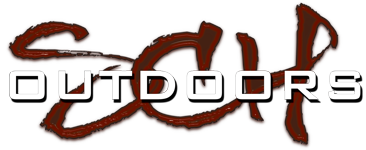8SteelTown said:
sdhunter said:
Stink is a term used for shooting divers, coots, that's a whole different category. Divers don't eat as well as puddles.
Good to know... thanks for the lingo lesson. Since all of my kills have been divers / coots (besides 1 teal), I guess I don't even know what I'm about to get into with these mallards!!! Really stoked now!!!
Cali was so stoked to be by the water and was fully purpose driven. Girl didn't chomp down on any of my birds and was all about business. Straight out and straight back. Even did a little pointing at some decoys... overachiever!
Your in the early stage of a disease, although not terminal, it can be quite impacting on relationships and the bank account.... ;D
FIVE STAGES OF A HUNTER
Hunters change through the years. Factors used to determine
"successful hunting" change as well for each hunter. A hunter's age,
role models, and his years of hunting experience affect his ideas of
"success."
Many hunters may fit into one of the following five groups. In
1975-1980, groups of over 1,000 hunters in Wisconsin were studied,
surveyed, and written about by Professors Robert Jackson and Robert
Norton, University of Wisconsin-La Crosse. The results of their
studies form a widely accepted theory of hunter behavior and
development. Where are you now? Where would you like to be?
SHOOTER STAGE
The hunter talks about satisfaction with hunting being closely tied to
being able to "get shooting." Often the beginning duck hunter will
relate he had an excellent day if he got in a lot of shooting. The
beginning deer hunter will talk about the number of shooting
opportunities. Missing game means little to hunters in this phase. A
beginning hunter wants to pull the trigger and test the capability of
his firearm. A hunter in this stage may be a dangerous hunting
partner.
LIMITING OUT STAGE
A hunter still talks about satisfaction gained from shooting. But what
seems more important is measuring success through the killing of game
and the number of birds or animals shot. Limiting out, or filling a
tag, is the absolute measure. Do not let your desire to limit out be
stronger than the need for safe behavior at all times.
TROPHY STAGE
Satisfaction is described in terms of selectivity of game. A duck
hunter might take only greenheads. A deer hunter looks for one special
deer. A hunter might travel far to find a real trophy animal. Shooting
opportunity and skills become less important.
METHOD STAGE
This hunter has all the special equipment. Hunting has become one of
the most important things in his life. Satisfaction comes from the
method that enables the hunter to take game. Taking game is important,
but second to how it is taken. This hunter will study long and hard
how best to pick a blind site, lay out decoys, and call in
waterfowl. A deer hunter will go one on one with a white-tailed deer,
studying sign, tracking, and the life habits of the deer. Often, the
hunter will handicap himself by hunting only with black powder
firearms or bow and arrow. Bagging game, or limiting, still is
understood as being a necessary part of the hunt during this phase.
SPORTSMAN STAGE
As a hunter ages and after many years of hunting, he "mellows out."
Satisfaction now can be found in the total hunting experience. Being
in the field, enjoying the company of friends and family, and seeing
nature outweigh the need for taking game.
Not all hunters go through all the stages, or go through them in that
particular order. It is also possible for hunters who pursue several
species of game to be in different stages with regard to each
species. Some hunters feel that role models of good sportsmen,
training, or reading books or magazines helped them pass more quickly
through some stages.
---------------
California Department of Fish and Game. "California Hunter Education
Manual". 1995 (revised edition). Sacramento, California. [p.8]





